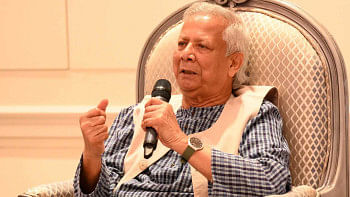‘Wholesale restriction won't be constitutional’
The public administration ministry recently asked all secretaries to instruct their subordinates to make sure that without prior approval of superiors concerned, no public servant writes on or talks to the media.
Shaikh Yusuf Harun, secretary to the ministry, confirmed to The Daily Star that a letter was sent to all secretaries, citing Rule 22 of the Government Servant (Conduct) Rules, 1979.
Rule 22 says a government servant cannot participate in a radio or television broadcast, or write for any newspaper or periodical, except with prior approval of the respective head of the department or in the bona fide discharge of official duties. The same restrictions shall apply if a government servant contributes anonymously, in his own name or in the name of any other person.
This rule makes it virtually subject to satisfaction of the head of the concerned departments, as the terms "bona fide discharge of official duties" are vague and hard to define.
The only exceptions to the general provision shall be when such broadcast, contribution or letter is of a purely literary, artistic, or scientific character or connected with sports; such broadcast or such contribution is required to project government activities on development works to the people by the commissioner of divisions, deputy commissioners and sub-divisional officers.
It is interesting to note that Rule 23 of the 1979 Rules says no government servant shall make any statement, fact or opinion in any document, public utterance or radio/television broadcast, which is capable of embarrassing the relations between the government and the people or any section of the people or the relations between the government and any foreign country.
When asked about the legality and constitutionality of such restrictions, Supreme Court lawyer Manzill Murshid said, "Freedom of expression is a constitutionally guaranteed right and any laws, rules, regulations or orders are subordinate to the constitution. The constitution itself puts certain restrictions on freedom of expression in the interests of the security of the State, friendly relations with foreign states, public order, decency or morality, or in relation to contempt of court, defamation or incitement to an offence. These apply to everyone, including public servants."
He further noted that government servants do have certain obligations to comply with, for example, "In terms of not disclosing confidential or secret information, as per the terms and conditions of the positions they officially hold."
However, "Any wholesale restrictions on the exercise of freedom of expression beyond the terms and conditions of the official positions of government employees will not be constitutional. If wholesale restrictions become effective, the constitution itself will be redundant," he observed.

 For all latest news, follow The Daily Star's Google News channel.
For all latest news, follow The Daily Star's Google News channel. 



Comments